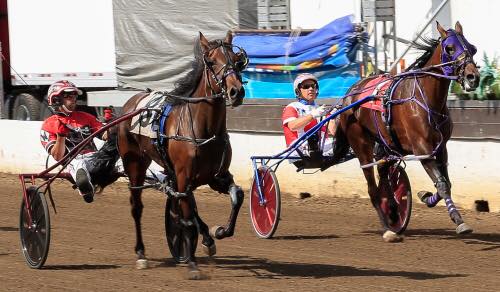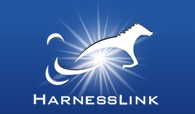
SPRINGFIELD, Illinois – Harness racing returns to one of the fastest tracks in the world in August when the trotters and pacers compete at the 2021 Illinois State Fair.
“For anyone who hasn’t experienced a live horse race, it’s thrilling,” said Illinois Harness Horsemen’s Association President Clark Fairley. “We’re thrilled to be racing again too, after the pandemic.”
Even though the pandemic threw a wrench in live racing last year, Fairley said there is a lot of optimism in the sport right now.
“Breeding numbers are up. The number of foals born is up. Fans can expect great competition and excitement at the Springfield and DuQuoin State Fairs.”
The number of foals born in 2020 was 354, up from 144 born in 2018. And while that is a far cry from the peak of 2,535 horses born in 1984, it is solid growth that can be built upon.
“There’s renewed interest in the sport and I’m hopeful that we’ll have a big turnout in the grandstand for the races,” said Fairley. “We saw great enthusiasm in 2019 with big crowds and strong handle so I’m looking forward to it again this year.”
Admission to the grandstand for harness racing at the State Fair is free this year and open to all ages. For those who wish to place a wager on their favorite horse, pari-mutuel wagering will be available.
Racing begins on Friday the 13th with the Illinois State Fair Colt Stakes Championships (ICF) eliminations.
Saturday the 14th will feature the Illinois State Fair Colt Stakes Aged Elimination (ICF), Illinois State Fair Colt Stakes Aged Divisions (ICF), and IDOA State Fair Races (ICF).
Racing on Wednesday the 18th will feature the Illinois Topline Races, and IDOA State Fair Races (ICF).
Racing culminates on Thursday the 19th with the Illinois State Fair Colt Stakes Championships (ICF), and the IDOA State Fair Races (ICF). Post time for all days of racing is noon.
Illinois horsemen are hopeful that the recently passed “racino” bill will continue to pump new life into the sport which has seen other states like Indiana and Ohio invest more into their horse racing industry. Those investments translate into tens of thousands of jobs from blacksmiths to equine veterinarians, hay and grain dealers, grooms, trainers, and more.
Because of the racino bill, Illinois-bred horses will be racing for larger purses and better racing opportunities in the years to come and that has driven interest in owning Illinois Standarbred racehorses.
At its peak, Illinois horse racing employed around 40,000 people, most of them in agricultural jobs.
“It’s a labor-intensive sport,” said Fairley. “One racehorse employs as many as five people.”
The DuQuoin State Fair will host races on August 27 and 28.
More information about the Springfield harness racing program can be found at the State Fair Website.
From the Illinois Harness Horsemen’s Association

 USA
USA Canada
Canada Australia
Australia New Zealand
New Zealand Europe
Europe UK / IRE
UK / IRE


